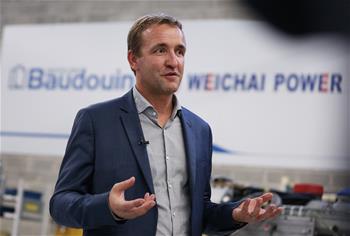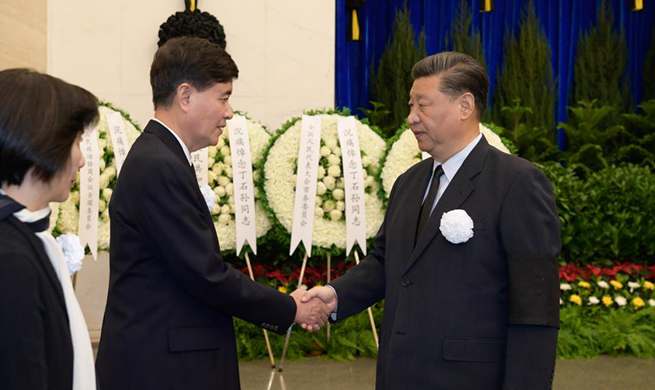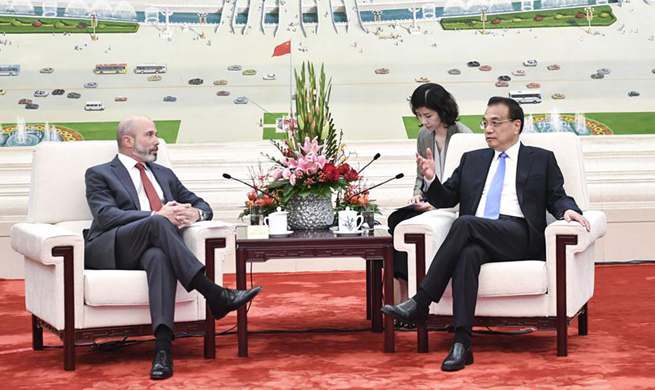NEW YORK, Oct. 17 (Xinhua) -- The German central bank's president has warned of the return of import tariffs in global trade practices, as well as entanglement of trade policy with monetary policy.
"Trade is not a zero-sum game ... Erecting trade barriers means distorting the global economy and lowering its level of activity," warned Jens Weidmann, president of Deutsche Bundesbank, on Wednesday while delivering a speech in New York at the Council on Foreign Relations.
Tariffs being imposed since the beginning of 2018 are already "weighing on world trade," and the ongoing trade conflicts "have undermined business sentiment and contributed to the higher level of uncertainty," he said.
Although tariffs will reduce imports, but exports are "likely to fall at the same time, due to weaker foreign demand and an appreciation of domestic currency," Weidmann explained, adding that new tariffs will make a country run the risk of "damaging its own economy," because an increase in the price of imported goods will "weaken the purchasing power of consumers."
"Indeed, American researchers have found that the U.S. tariffs introduced last year were almost completely passed through into U.S. domestic prices," the central banker said.
"Retaliatory tariffs adopted by other countries will probably do even further damage," said Weidmann, noting trade tensions "are a key factor behind the current weakness in the global economy. And a further escalation of trade conflicts remains one of the most important risks..."
He was also alarmed by the new trend that trade policy debates become "entangled with monetary issues".
"Allegations have been raised that some countries are intentionally devaluing their currencies with the aim of improving domestic price competitiveness at the expense of their trading partners ... However, as far as I can see, no major economy is currently engaging in strategic competitive devaluations," he said firmly.
Weidmann also said that he believes the debate on competitive devaluations has illustrated that "political pressures on central banks have risen recently."













